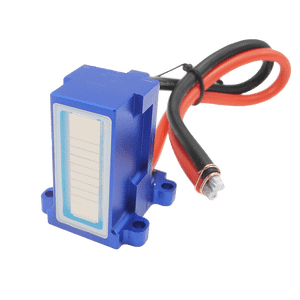Electronic Components Supplier | Transformers, Inductors, Inverters
PRODUCT PARAMETERS
Description
Overview of Transistor tester
Thyristor is a solid-state semiconductor device composed of four layers of alternating P- and N-type materials. It functions as a bistable switch, conducting current only when triggered by a gate signal, and remains conducting until the voltage across it drops below a certain threshold. Thyristors are widely used for controlling high-power electrical circuits, offering efficient and reliable performance in various industrial and electronic applications.
Features of Transistor tester
- High current and voltage handling capabilities
- Low on-state voltage drop, reducing power loss
- Fast switching speeds for precise control
- Latching behavior: once triggered, remains conducting without continuous gate signal
- Robust and durable design suitable for harsh environments
- Available in various types (e.g., SCR, TRIAC, GTO) for specific needs
(Transistor tester)
Specifications of Transistor tester
This transistor tester handles several jobs quick. Plug in an element. It finds out what it is immediately. You see the results right away. No complicated buttons or settings. It determines transistors, diodes, resistors, capacitors, inductors, and a lot more. It tells you the type: NPN, PNP, JFET, MOSFET. It even locates the pinout properly. This conserves massive time troubleshooting circuits.
Important specifications are plainly shown. The vital gain value (hFE or β) is displayed. This shows amplification power. Collector-Emitter voltage (Vce) is determined. Leakage currents (like Iceo) are inspected. This finds malfunctioning components. Diode forward voltage (Vf) is given. Resistor and capacitor values are determined accurately. Inductor values are revealed as well. Test frequency issues for caps and coils. Good testers utilize suitable frequencies.
The device has outlets for different components. TO-92 transistors fit easily. Larger TO-220 parts attach fine. Diodes and resistors connect directly in. The device identifies pins instantly. You don’t stress over orientation. A clear display reveals whatever. LCD displays prevail. Some designs have brilliant electronic display screens. Dimensions happen quickly. Results are secure and reputable.
The tester works over a wide variety. It measures resistors from 0.1 Ω to 50MΩ. Capacitors from 0.1 pF to 100,000 µF are dealt with. Inductance up to 20H is covered. Voltage tests go high sufficient for the majority of jobs. It operates on batteries. Transportability is a big plus. Take it anywhere. Build top quality issues. Great testers utilize sturdy outlets. They withstand wear. The case safeguards the internals. This device is necessary for electronic devices work. It accelerates screening. It validates component worths. It finds failures instantaneously. Students, enthusiasts, and professionals all advantage. It protects against mistakes. It saves cash on incorrect substitutes.
(Transistor tester)
Applications of Transistor tester
Transistor testers are essential devices. They assist with electronics function. These gadgets check numerous components. They test transistors, diodes, capacitors, resistors, and much more. Knowing if a component is excellent or busted conserves money and time.
Layout engineers use transistor testers usually. They build brand-new circuits. They need the best components. The tester validates component values match the style specifications. It locates bad parts prior to they go into a new board. This stops problems later on.
Manufacturing lines count on these testers too. Quality assurance is crucial. Workers examination components prior to assembly. They test boards after soldering. Locating a defective transistor very early quits bad products from delivery. It keeps consumers delighted. Repair professionals discover transistor testers vital. Busted electronic devices have lots of little components. Discovering the stopped working one is hard. The tester promptly checks transistors and diodes. It determines the damaged part. This quicken the repair work. People obtain their tools back faster.
Electronic devices education uses these devices. Trainees learn more about components. They construct simple circuits. A tester lets them see if their parts function. It aids them understand component failing. Hands-on learning is much better with the right devices. Hobbyists benefit significantly. Structure projects in your home is enjoyable. Using recovered components is common. Old parts may be damaged. The tester checks them prior to use. It avoids frustration when a project does not function. It makes pastime work simpler.
These testers are functional. They handle many element kinds. They offer quick outcomes. They are basic to operate. Any individual working with electronic devices finds them useful. They are a key device for dependable work.
Company Profile
PDDN Photoelectron Technology Co., Ltd. is one of the leading enterprises in power electronics technology and power products, which is fully involved in developing solar inverters, transformers, voltage regulators, distribution cabinets, thyristors, modules, diodes, heaters, and other electronic devices or semiconductors. We will be committed to providing users with high-quality, efficient products and considerate service.
It accepts payment via Credit Card, T/T, West Union, and Paypal. PDDN will ship the goods to customers overseas through FedEx, DHL, by sea, or by air. If you want high-quality Transistor tester, please send us inquiries; we will be here to help you.
Payment Methods
L/C, T/T, Western Union, Paypal, Credit Card etc.
Shipment
By sea, by air, by express, as customers request.
Storage Conditions
1) Store in a dry environment at room temperature.
2) Avoid damp and high temperature.
3) Use immediately after opening the inner packing bag.
5 FAQs of Transistor tester
What parts can this transistor tester check?
It tests many electronic parts. You can test transistors, MOSFETs, diodes, LEDs, resistors, capacitors, and inductors. It identifies the part type automatically. It also finds the pin configuration for parts like transistors.
How do I use this tester?
Using it is very simple. Turn the tester on. Place the part leads into the three test sockets. The tester does the rest. The screen shows the results clearly. You get the part type, values, and pinout. No complicated setup is needed.
Is the measurement accurate?
Yes, the measurements are generally accurate. Accuracy depends on the specific part and value. Component values like resistance or capacitance are measured well. Transistor gain (HFE) readings are good for basic testing. It’s reliable for hobbyists and troubleshooting. It’s not lab-grade equipment.
Can testing damage my parts?
Testing is usually safe. The tester uses very low voltage. This low voltage protects sensitive parts. There is almost no risk of damage during normal testing. It’s safe for most common components.
Does it have extra features?
Yes, it offers several useful extras. It can measure capacitor ESR. ESR is important for spotting bad capacitors. It can test diode forward voltage precisely. It has a signal generator function. It can test continuity on circuit boards. Some models store previous test results.
(Transistor tester)
REQUEST A QUOTE
RELATED PRODUCTS
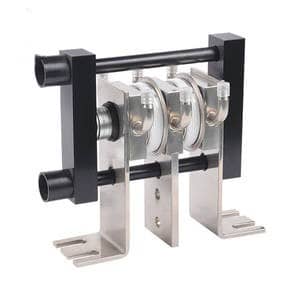
Factory-Presented Good Silicon SCR Stud Welder Thyristor Triac Module for Phase Control Application for Replacement
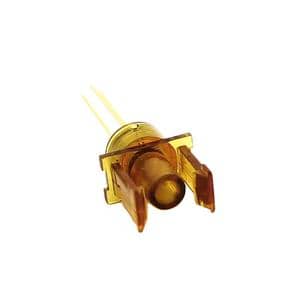
Induction Heating Furnace for Steel Wire Rod Reformed Material
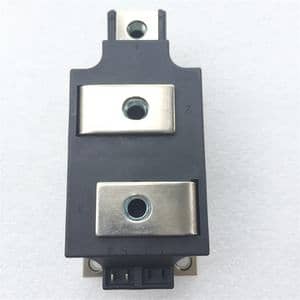
1mw Power Plant Vertical Free Energy Turbine Low Rpm Generator
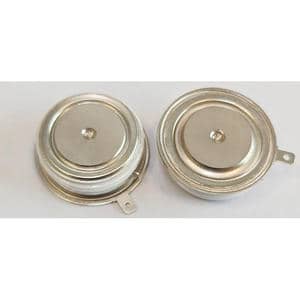
Billet Electric Induction Heating Furnace

High-power electronic voltage regulator 5000W 220V with Shell thyristor voltage regulator temperature dimming



